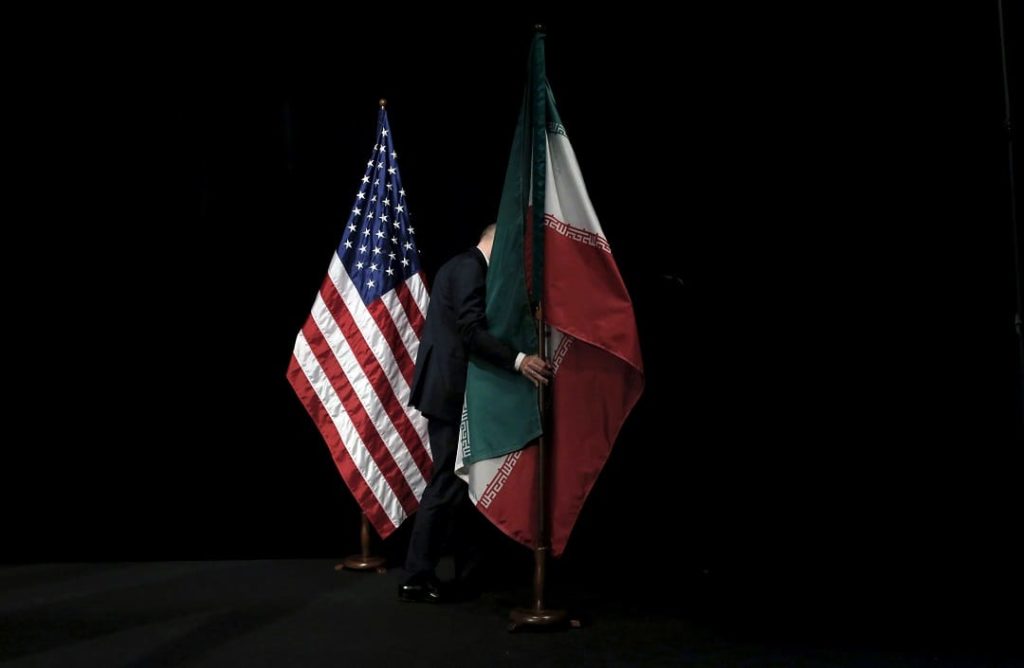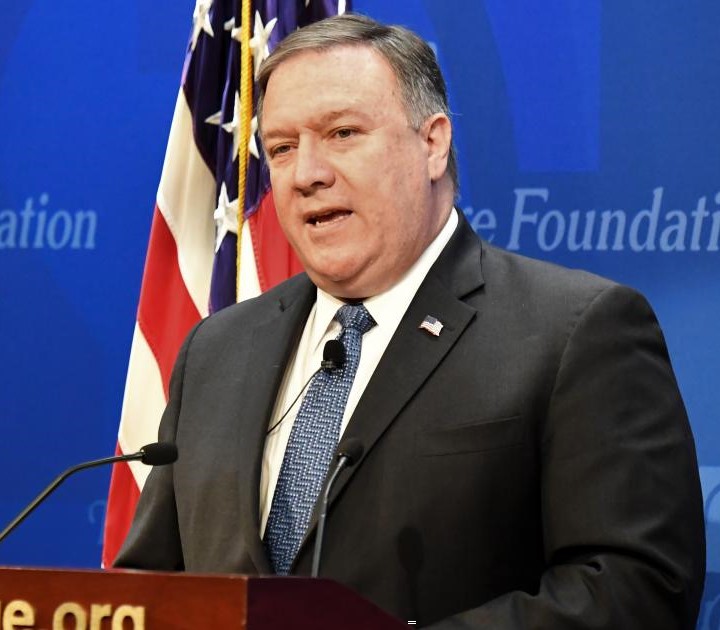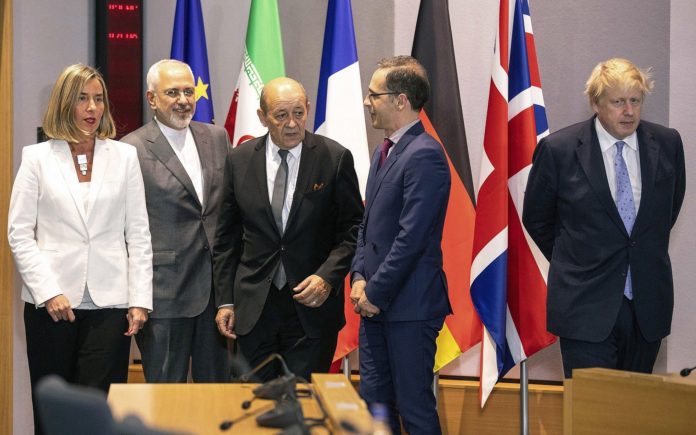The United States of America has scrapped the Iran nuclear deal 2015 and announced various sanctions on Iran and multinational companies doing businesses in it. After North and South Korean peace talk it was feared the next target of international imperialistic forces would be Iran which proved to be unfortunately true. Now the world has been divided into two distinctive poles i.e. US imperialistic forces and EU led rationalists.
The European Union (EU), the biggest investor and exporter of Iran has unanimously agreed to honor the Iran nuclear deal 2015 despite President Trump’s withdrawal and member states have requested Brussels to come up with concrete measures to cope with the impact of US sanctions. In one of a series of meetings, foreign ministers from Britain, France and Germany signatories of the 2015 deal to stop Iran developing nuclear weapons held talks with Iranian Foreign Minister Mohammad Javad Zarif, amid concerns that the sanctions will also damage European business interests. The U.K. and the EU continue to view the nuclear deal as vital for the shared security, and remain fully committed to upholding it.
The recent anti-US decision/ stance of the EU has put it on an economic collision course with the US as it seeks to protect its transcontinental companies, institutions and trade with Iran from the sanctions. The EU called on Washington “to avoid any actions that could prevent the remaining parties to the agreement from meeting their commitments under the deal – including delivering sanctions relief through legitimate trade.”
During the meeting, the European Council president said all 28 member countries had pledged their commitment to the agreement “as long as Iran remains fully committed it”. Angela Merkel, the German chancellor, said “all European Union member states still stand by this agreement”. To prepare a comprehensive strategy to safe the Joint Comprehensive Plan of Action (JCPOA), the EU launched work on a nine-point economic plan to keep the Iran nuclear deal alive after the abrupt withdrawal of the US.
Tehran had warned it would resume industrial-scale uranium enrichment without any restrictions unless Europe could provide solid guarantees that it can maintain the economic benefits it gained from the nuclear agreement despite Washington re imposing sanctions. Recently Iranian Foreign Minister Mohammad Javad Zarif met EU foreign policy Chief Federica Mogherini and his counterparts from Britain, France and Germany the three European signatories to pact in Brussels. He also visited Russia and China, the two other signatory nations and tried to win diplomatic support from them, he later termed negotiations were on right track and productive.
EU economic, financial, marketing and legal experts are busy preparing a counterproductive strategy having concrete proposals in the coming weeks on nine key issues including ensuring Iran could sell its oil and gas products and have access to international finance. EU is now focusing to maintain economic ties with Iran, continuing Iran’s ability to sell oil and gas products and protecting EU companies doing business in Iran. The EU is also looking at how it could develop special financing vehicles for doing business with Iran.
The European Union insists the deal is working, pointing to repeated UN inspections verifying the Islamic republic’s compliance with its side of the bargain. EU leaders aim to show a united front on preserving the Iran deal when they meet for a pre-summit in Sofia in the next week.
European firms, especially those from France and Germany, rushed to invest in Iran following the 2015 accord, under which Tehran agreed to freeze its nuclear program in return for an end to punishing international sanctions. German exports to Iran totalled nearly 3.0 billion euros in 2017, while French exports soared from 562 million euros in 2015 to 1.5 billion in 2017 and oil giant Total has pledged to invest some $5 billion in the South Pars gas field.

Washington has long complained that the nuclear deal does nothing to stop Iran’s ballistic missile program or its interference in conflicts across the Middle East from Syria to Yemen. US Secretary of State Mike Pompeo said Washington still wants to work with Europe to counter Iran’s “malign behaviour” and was working hard to thrash out a more wide-ranging deal with its European partners.
The European Commission has been examining measures to counter the introduction of any U.S. sanctions that might harm European businesses and is expected to unveil them to EU leaders at a meeting in Bulgaria. The EU may use “blocking regulation” which would, in essence, ban European companies from respecting American sanctions where those sanctions might damage EU interests, notably trade and the movement of capital. The EU’s energy commissioner is also traveling this week to Iran to discuss strengthening European energy support to Iran.
Trump’s decision represented a double-edge sword i.e. to impose “the highest level of economic sanctions” on Iran and “to prevent European firms from doing business in Iran“. Besides the fear of possible manufacturing of Iranian nukes in the future, there is more concern over the economic ramifications of Trump’s decision on European corporations, which have started investing in Iran after the 2015 deal. For instance, Total of France has initiated its explorations of offshore natural gas in the Iran coast. Siemens of Germany has finalized an accord with Tehran to deliver locomotives. Airbus of France was early in Iran, right after the signature of the Nuclear Deal, to remake Iran Air’s aging fleet with more than 100 aircraft, including a dozen super jumbo A380s. European automakers like Daimler and PSA Peugeot Citroën have made plans to sell their vehicles in the Iranian market having about 82 million population. Italian state-owned holding Invitalia completed an €5 billion investment deal with Tehran. In 2017, exports from the European Union to Iran increased by about one-third to 10.8 billion euros, or about $12.8 billion, while Iran ranked 33rd among the EU’s trading partners.
Despite Iran’s rigorous diplomatic efforts, saving of its nuclear deal will be heavily dependent on the EU’s plan “B” and of course Moscow and Beijing counter narrative against the US universal economic role and unjust political maneuvering. It seems that President Emanuel Macron of France, Chancellor Angela Merkel of Germany, and Prime Minister of Britain Theresa May have failed miserably to convince the US president Trump to honor the multi-lateral deal. Still, the EU remains a driving force behind the preservation of the Deal; “As long as Iran continues to implement its nuclear related commitments, as it is doing so far, the European Union will remain committed to the continued full and effective implementation of the nuclear deal. EU fully trusts the work, competence and autonomy of the International Atomic Energy Agency that has published 10 reports certifying that Iran has fully complied with its commitments.”
The European Union insists the deal is working, pointing to repeated UN inspections verifying the Islamic republic’s compliance with its side of the bargain. German Chancellor Merkel confirmed that Berlin would remain committed to the deal “as long as Iran continues to fulfill its obligations” under the document. She also spoke in favor of negotiations with Iran to discuss “its ballistic missile program and activities in the region, including in Syria.”
The scrapping by Trump of the Iran nuclear deal of 2015 has put regional as well as global security at risk. Iran has been following instructions International Atomic Energy Agency since 2015. Iran has also been cooperating with its all signatories of Joint Comprehensive Plan of Action (JCPOA) but rapidly changing geo-political and geo-strategic scenarios in the region has pushed the US in this direction of total denial.
Iran’s allies have won elections in Lebanon and Iraq despite wishes of its regional rivalries and its support to Syrian President and Houthis in Yemen has forced US and Israel to abandon the nuclear deal. Pakistan is also feeling the heat because of so many complicated and complex reasons. Iran-Pakistan pipeline has been delayed due to US pressure. US sanctions have been one of the main hurdles in the completion of Iran-Pakistan peace gas pipeline. US, Israel, Saudi Arabia, UAE and GCC expect Qatar are the winners of US president decision towards Iran nuclear program. Iran, EU and India are the potential losers. Nevertheless, survival of international law system, economic mechanism, political domain and above all concepts of globalization and multilateralism are at stake.

United States Secretary of State Mike Pompeo’s maiden foreign policy speech was focused entirety on Iran. During his speech, he outlined 12 strict conditions that not only required Tehran to commit to almost everything that was already included in the nuclear deal, but went beyond them to counter, restrict and reverse its harder behaviour across the region.
Additional conditions are given below as:-
End support for terrorist groups, including Hezbollah, Hamas, and Jihad; respect the sovereignty of Iraq and permit the disarming of Shiite militias; end military support for Al Houthi militias in Yemen and work towards a peaceful political settlement there; withdraw all forces under Iranian command from Syria; end support for the Taliban and other terrorists in Afghanistan and the region and cease harbouring Al Qaida; end the Islamic Revolutionary Guard Corps’ support for terrorists and militant partners; cease its threatening behaviour against its neighbours and curb its missile programme.
Pompeo also threatened that the US “will apply unprecedented financial pressure on the Iranian regime; the strongest sanctions in history”. He said the US will rally the world to impose crippling economic pressure on Iran to force it to end all enrichment forever. On Iran’s regional meddling he said: “We will track down Iranian operatives and their Hezbollah proxies operating around the world and crush them Iran will never again have carte blanche to dominate the Middle East.”
President Hassan Rouhani said that neither Iran nor the whole world will simply accept that the US makes decisions for every country, adding that the Trump administration has taken Washington back by 15 years, repeating the same old words of 2003 and 2004. Naturally, Israel, a staunch critic of the Iran nuclear deal, lauded Pompeo’s speech.
The EU, Russia and China have all expressed readiness to find ways to save the nuclear deal. European signatories were digging deep to come up with solutions to the biggest challenge: How can European companies avoid the backlash of US economic sanctions? Already a number of European companies have decided to cease all Iranian operations as a result of the US withdrawal. Zarif has said that time is running out and that it appears that it would be difficult to save the deal.




